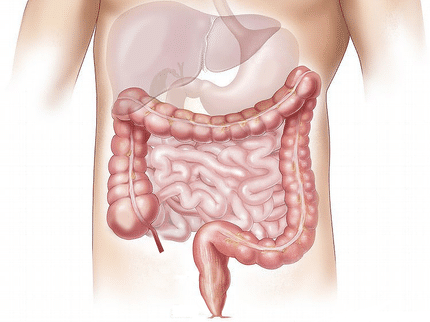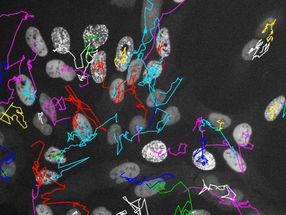Broccoli ingredient has positive influence on drug efficacy
Colon cancer cells that are pretreated with an ingredient found in cruciferous vegetables are more likely to be killed by a cancer drug that is currently in development, found ETH scientists. This is one of only a few examples of a food ingredient that, in moderate amounts, has a positive influence on the efficacy of a cancer drug.

Cruciferous vegetables – broccoli pictured here – contain sulforaphane. When consumed in our food, this plant ingredient alters the enzyme profile of the body’s cells.
Meditations, pixabay.com, CC0
Certain foods can alter the activity of endogenous enzymes and thus influence the efficacy of drugs. It is well known, for example, that grapefruit has an adverse effect on a number of anti-arrhythmic and cholesterol-lowering drugs: it contains ingredients that inhibit an endogenous enzyme responsible for the degradation of certain medications in the liver. Consumption of grapefruit thus increases the side-effects associated with these drugs.
Until now, only a few examples existed of food ingredients that influence the efficacy of the drug to the benefit of the patient through nutrition. Scientists from ETH Zurich and the University of Zurich have recently discovered a new example of such a correlation, as they report in the scientific journal PLOS One.
Higher concentration of enzymes
The researchers struck gold when they investigated the effects of sulforaphane on human intestinal cells. Sulforaphane is a naturally occurring ingredient in a number of cruciferous vegetables, such as broccoli. The scientists, led by Shana Sturla, Professor at the Department of Health Sciences and Technology at ETH Zurich, treated various types of colon cancer cells and intestinal cells from healthy subjects with this substance in the laboratory. The concentration used was approximately equivalent to that which reaches the intestines after consuming a meal with broccoli, and importantly, at a dose that did not itself act in killing the cells.
The researchers discovered that sulforaphane increases the concentration of a number of enzymes in the colon cancer cells, including those of an enzyme with the abbreviation AKR1C3. Interestingly, sulforaphane does not have this effect in all cases: in colon cancer cells that already exhibit a significantly elevated concentration of AKR1C3 as a result of the cancer, the broccoli substance caused a further increase in the concentration of the enzyme. But sulforaphane had no influence in colon cancer cells with an initially very low concentration of AKR1C3. The same was found with intestinal cells unaffected by cancer.
Drug dose can be reduced
The enzyme AKR1C3 is a biochemical actor in several metabolic pathways in the human body. It is also central in the efficacy of a cancer drug that is currently still in development and clinical testing. This drug, called PR-104A, is administered in an inactive form and is converted into its active form inside the cancer cells by the AKR1C3 present there. The researchers therefore used cell culture to investigate whether the broccoli ingredient increased the efficacy of PR-104A. Their hypothesis was confirmed: when the scientists pre-treated the colon cancer cells with sulforaphane, less than a third of the usual dose of PR-104A was enough to kill the cancer cells. “Since cancer drugs generally have strong side-effects, any approach that reduces the dose of medication while maintaining efficacy is always welcome,” says Sturla.
Non-toxic and without side-effects
“What’s interesting with sulforaphane is that it occurs naturally in our food and is non-toxic in the concentrations we used,” says the ETH professor. “In addition, the sulforaphane-enhancing effect was seen only in cancer cells and not cells from healthy tissue, which would be very important for avoiding unwanted side-effects from the combination”. Based on these results in cell cultures, the scientists aim to conduct biomarker-based clinical studies with cancer patients to investigate whether sulforaphane positively supports a treatment with PR-104A.
The researchers also want to find further food ingredients that positively influence the efficacy of medication, even in small amounts, as well as accompanying biomarkers that can help track personalized responses. “We assume that there are other such combinations out there,” says Sturla.
The expertise they have built up will benefit them in this further research. In this project, which was supported by the Swiss National Science Foundation with funding for interdisciplinary research, the scientists investigated the influence of sulforaphane on intestinal cells at different levels: at the genetic level, that of proteins and enzyme activity, and the functional effect on cells. In addition to scientists from Sturla’s group (toxicology), ETH Zurich scientists from the groups of Professors Bernd Wollscheid (biomedical proteomics) and Niko Beerenwinkel (computational biology) closely collaborated, as well as Giancarlo Marra (molecular cancer research) from the University of Zurich.

























































